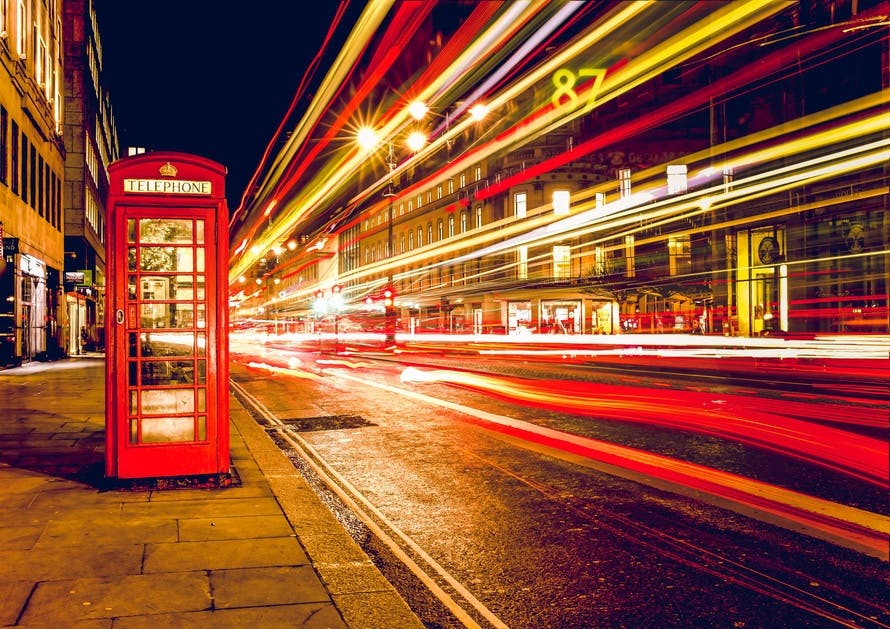So A Time Traveler Walks into A Bar…
19 February 2016

I have had a little more than a casual interest in time travel since I was a kid. This is a healthy curiosity for young children, I suppose, no matter the century they were/are born in.
I used to thumb through pages of the bible wondering if some of the fantastic stories written in the books weren’t actually the results of having super-advanced people from the future visit the past and just, you know, impress the rest of the natives with their really cool tech (read ‘signs and wonders.’)
I once read something titled ‘The Adventures of The Really Cool Jesus,’ a story that seemed to say that Jesus had a jetpack and that many of his miracles were aided by technology of the millennium and that he was basically a man who came back in time to alter the fate of humanity with techno-gadgetry: bamboozle the slack-jawed audience by multiplying their bread and fish using advanced cellular regeneration while taking long, thoughtful breaks to tell them not to be such bastards to each other.
Then I graduated to reading Star Trek, and my world surged at warp speed.
Amidst the good-natured ‘beam me up, Scotty!’s and the boldly going where no man has gone before, I read more than my fair share of space-time continuum rifts and the catastrophic recoil. I even wrote a story about the Grandfather Paradox (irreverently pitching the great Albert Einstein as a character in it), exploring the multiple inexplicables of time travel.

Why is Time Travel so fascinating?
One theory is that it tickles the escapist in all of us – the desire to escape the cash crunch, the despair of the century, then flee the nest in search of climes that are more bearable. I for one would have loved to drop by Leonardo Davinci’s workshop (nod to Mr. Sherman and Peabody) and live life, briefly at least, through the young eyes of the Generation X babies.
Do you sometimes feel like you were born before your time? Like you should have been born earlier, or later, but not at this time? How convenient, yes, if there was a device whose dial you could twist like so and – whammo – you’re coalescing into something solid in some Amazonian forest, your wristwatch ironically an anachronism and your entire way of life incongruent with the timeline of your own species?
I have often wondered about time travel. If you are traveling from point 0 – which is the present, which is whenever you are reading this article, irrespective of the time it was published – it hardly matters if you are traveling into the future or the past. That is the basic assumption: that time travel officially begins when there is a press release or when you, the audience, see it happen. If we are unaware of it, it did not happen. That notion is useful for most purposes.
We have to believe, naturally, that time travel has not started because no one has announced such a breakthrough, but what if someone traveled from the past into the present today? This is a thought process only a few people have explored. Let us now consider it at the simplest level, shall we, without resorting to math or preconceived hypotheses.
Turn the Dial
The time is 1961. You are a young man, or woman, living in Nigeria a year after your country has gained independence. You are not very politically inclined, and if we are being honest, not very educated. As such, your tastes lean delicately on the simplicities of life, such as the latest vinyl record your father allows you play when he returns home in a good mood.
Most people are uncertain of Nigeria’s fate. It feels, to many, like an untested driver – who, incidentally, is the rightful owner of the car – has seized control of his vehicle and although he appears to have his foot on the right pedals, the little judders leave a lump in the collective throats of the populace. This is the general opinion. For you, however, black face or white face, it hardly matters.

Although you do not know this – and will never experience this – your country is fated to have a horrific civil war in six years’ time, the leading actions already in operation now. You understand, vaguely, that the control of the North is unfavorable to the Igbo people, but you do not know by how much. You belong to a minority tribe, so it is a little tap-dance for your people, deciding on which tribe their fealty lies.
There is a loud bang outside your compound, and you rush out to see the problem. You look, but cannot see much: there is smoke, and the smell of gunpowder fills your nostrils. People are dead, and you do not understand why; your street is usually so peaceful. There is an unintelligible yet guttural cry in the distance and you realize that something evil this way comes.
So you run the other way, away from your open door, away from the 3-day old soup you put on the fire barely two minutes ago. As you dash across the road you cannot see, you hear people yell - and they sound closer than you would prefer – so you run faster, more haphazardly, until you are more lost than you originally were.
Without warning – and to heighten the dramatic effect of this – the smoke clears up, and you stop coughing, and can see the horizon before you.
It is totally strange.
When you look on, the cars, the people, the buildings and everything within your scope of vision tell you that you may have ingested some poisons in the smoke. The world as you know it has become something infinitely stranger and you do not have the apparatuses with which to study it.
Your clothes themselves are somber rags from a time when the currency was spooning the dollar, so people stare at you curiously even as you stare harder – and win.
What you are experiencing is known as culture shock, in a manner of speaking. You are a traveler, coming from an era, exposed to a floodlight of newness, and it overwhelms you. Perhaps if you understood this, you would have been able to process the information better.
So you do what every time traveler does when he/she visits a brave new timeline.
You go to the bar.

But you do not – cannot - order a drink because the only money you have on you is 2 naira fifty kobo. When you stretched your money to the bar man, he barked, irritably, ‘YOU THINK NA PLAY I COME PLAY?’
And you are relieved, at least, that the people here speak exactly like the people from your home. You ask him how much a beer costs, and he tells you it is N300.
And you whistle. And you shake your head. And you begin to laugh.
Curiously, he joins in, and mentions the president’s name. You nod, and say ‘that president,’ wondering who he is. The bar man asks you where you come from.
And you mention a town that no longer exists and he shrugs. He pours you a drink, feeling pity for you because you look so lost.
Then he tells you about the economy, and about the state of the nation, and yesterday’s Manchester United scores. And you listen, fascinated yet confused, laughing when you think you see a cue to, and generally nudging the conversation up the path to enlightenment.
It takes a while, but you realize what has happened. What you do not realize, however, is that if you checked, you would find – if you could – that your father, mother, brother and lone uncle are long dead, two of them dead from separate violent events in the history of the country. Your name was briefly broadcast on local stations as a missing person, after which it was stopped because your parents could no longer afford the advertisement rates.
The police did look for you, to their credit. They searched the dens of mischief around your town in hopes that they would find you doing something worth arresting for and billing your parents a lot more than they were initially paid.
And you remember the time the slogan went out, in 1960, that ‘Change Has Arrived,’ because the white man had finally been sent away.

Change is here, the youths chanted as they threw miscalculated cartwheels in the streets.
You look outside to see the washed-out posters from political campaigns. You cannot make out much from what is left of them, except for that same word.
Change.
Leave a comment
Leave a comment
Share